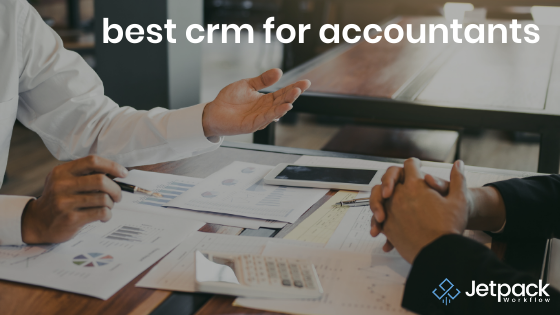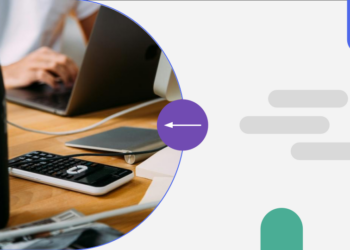Best CRM for Accountants

Finding a good CRM for accountants (or accounting firms) can be challenging. Fortunately, there are a few best practices for getting and finding the best CRM for your firm.
Why a CRM?
CRM, or Client Relationship Management, is often geared towards helping salespeople better track their leads and prospects.
For many accountants and accounting firms, this is NOT the tool they had in mind. In our experience, CRM’s that focus on sales and prospecting are typically a poor fit for many accountants.
Core Features
Let’s first go through the list of ‘features’ and why they’re useful, then discuss some of the options accountants have for finding a CRM software or application.
Here’s a quick list of what we’ll cover:
- Central Client List
- Tasks and Task Management
- Recurring client Management
- Workflow View
Central Client List
At the core of every CRM software is the ability to have a central client list that can be consistently updated by the team.
This list can contain basic information such as name, address, and email, as well as more detailed information around billable address, second or third contact points for a given client. It’s important that whatever CRM software or application you choose as an accountant, that the client list is easy to use.
Tasks
The next set of features is adding notes and to-do’s or tasks. Adding notes and tasks on clients is critical for your firm if you wish to maintain an up to date record of all interactions and work that needs to be done for a specific client.
Apart from these two core features, CRM’s start to change based on the industry (or role) they are built for. As mentioned, many CRM applications is a software that is built for salespeople, not accountants. As such, I would recommend looking for tools that focus on Recurring Client Management (RCM).
Recurring Client Management
CRM software is primarily used as a means to track leads and close deals. But in a recurring revenue model (like accounting) you also need current client tracking, built to handle both new and existing client relationships.
A few unique points about using a tool that includes recurring client management include:
- Using a tool that includes task management and workflow capabilities: Instead of only tracking lead scores and communications, a quality solution offers the ability to track the work you do for clients that say “yes.”
- Helps manage the internal team, too: With accounting, you need to know where projects and deliverables are in the workflow process. This means the ability to understand who’s working on what, where they are in the process, and critical due dates.
- Templates and Other Goodies: Of course, an internal and external customer/team management system needs helpful gizmos! Things like templates, to save those common processes (e.g. a Month-end close checklist). And other features, like custom labels.
Setting Recurring Work
As an accountant or accounting firm owner, some percentage of your work is going to be recurring. The ability to set up customizable recurrence schedules across your team and clients. So recurring tasks, jobs, or projects are important parts of RCM.
Work Views
Another feature of RCM is being able to create work views so you make sure that client work doesn’t fall through the cracks.
Tracking client work, especially recurring client work across many clients, can quickly add up and become overwhelming for many generic applications or software tools (whether it’s a basic CRM, task management, or project management application). Therefore, a critical element of RCM is giving the owner and team the ability to quickly see what’s been assigned to them, and drill into a specific work category, status, due date, client file, and more.
Choosing a Quality Client Relationship Management Solution
Now that we’ve covered the core features of a CRM, you’ll want to know some things to look for in a quality solution.
Here are three key criteria:
- Learning material: Every piece of software is a new process for your team, clients, and yourself. The easier it is to learn, the better. You’ll want great training materials, onboarding help, or implementation assistance to ensure the best buy-in from your team.
- Customer service: We’re talking about putting your business in a digital form, so it’s a pretty important piece of tech, right? That means you want fast responses, so check whether or not the solution has chat, email, and/or phone support.
- Reviews, case studies, and testimonials: Then it’s time to see what others are saying about a particular software! It’s ok to look on the product site itself, to find case studies and testimonials. Then, go to 3rd party review sites (like G2 and others) to see what else people say.
Further reading: Want a more detailed look? We’ve created a full-length buyer’s guide, with everything you need to choose the best accounting software for your firm. You’ll also find a detailed review of nearly a dozen of the top solutions.
Jetpack Workflow CRM Meets You Where You’re At
Whether you’re switching from a CRM, moving from spreadsheets, or starting from scratch, testing out both CRM and recurring client management applications is a critical step in helping you build a highly scalable, profitable firm.
Most applications will come with a free trial period. We recommend starting out with a free trial to see if the application is a good fit. As an accountant looking for a solid CRM, the search might not be easy, but hopefully you’ve found this article helpful.
Jetpack Workflow was built for accountants and accounting firm owners, and comes with a 14 day free trial.





